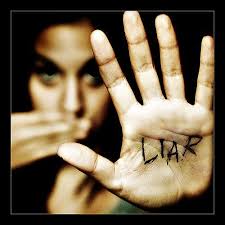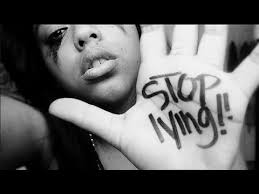Q: I caught my boss in a flat out lie and frankly I was so shocked that I said  nothing. When I looked up, everyone’s eyes were on me, waiting for me to say something. What should I do?
nothing. When I looked up, everyone’s eyes were on me, waiting for me to say something. What should I do?
A: When I was a kid I believed that if I told a lie my nose would grow just like Pinocchio’s. Serial lying would result in donkey ears and a tail and I would be shipped away from my family. A lie was a lie—no quibbling, wordsmithing, normalizing, or psychologizing—and telling a lie had serious consequences.
Pinocchio no longer seems to serve as an effective cautionary tale. We have seen a steady stream of prominent individuals tell boldface lies and not suffer the Pinocchio consequences. It shouldn’t surprise us that individuals who populate organizations take their lies with them; those lies can become embedded in the corporate culture: Cigarettes do not cause lung cancer, Takada Airbag explosions are rare anomalies, the Samsung Galaxy 7 is safe.
The next level is global. We usually call lies perpetuated by countries propaganda but, at their core, an individual or group of individuals is lying: the Chinese melamine “milk” scandal, Rohingya displacement and genocide, South African black diamond trade, and Saudi Arabia’s current involvement in Yemen.
Robust pressure from Saudi Arabia killed similar efforts two years ago. Last year, Saudi Arabia also got its name scrubbed from an annual United Nations list of countries that kill and maim children in war.
The latest United Nations human rights report, released in early September, found that Saudi-led coalition airstrikes continued to be the “leading cause” of civilian deaths, including child deaths.
There are so many examples that I feel compelled to cite more because lies can cement and subvert group behavior. For example, it took a village of people in collusion—coaches, players, families, and the NCAA—to engage in a complicated scheme of lies designed to make millions steering athletes to attend specific schools and to wear Adidas gear:
After the charges were announced, Adidas said it had just learned of Gatto’s arrest. “We’re unaware of any misconduct and will fully cooperate with authorities to understand more,” the company said in a statement.
arrest. “We’re unaware of any misconduct and will fully cooperate with authorities to understand more,” the company said in a statement.
And, unfortunately, lying seems to be the most frequently selected arrow in the communications quiver of the current occupant of the White House. No need to say more because I know that you know a lie when you hear it. Right?
A lie requires silence; when individuals remain silent the lie takes hold and can grow. Social media acts as an accelerant, allowing the lie to consume facts, truth and morality.
Consider your tolerance for lies by answering these questions before making your next move:
- Are you willing to allow your “silence” to be viewed as agreement? Are lies the linchpin holding your work environment together? Think subprime mortgage crisis or “the London Whale”
[Javier Martin-Artajo] the French national said he had been “instructed repeatedly” by senior management in the CIO to execute the trading strategy that caused the losses.
- Going forward, will you be part of the problem or will you be part of the solution?
- Will you speak or be silent?
You may think I overuse the work “lie,” but I do so deliberately. Using  synonyms and euphemisms takes the sting and shame out of lying. Don’t let liars off the hook. Call it what it is.
synonyms and euphemisms takes the sting and shame out of lying. Don’t let liars off the hook. Call it what it is.